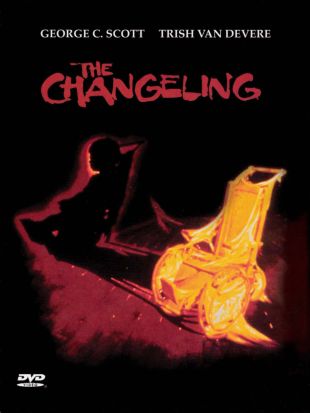
Though woefully uneven as a filmmaker, director Peter Medak did outstanding work on this solid horror sleeper, which deservedly won 1980's Genie Award for Best Picture. Few American or Canadian thrillers have taken a central cliché as worn-thin as the haunted house and reinvented it as ingeniously as Medak does here. Working from a script by William Gray and Diana Maddox, Medak uses as one of his central characters the possessed home into which widower John Russell (George C. Scott) moves. Via intelligent aural and visual choices, a careful avoidance of sensationalism, and the Artaudian depth that Stanley Kubrick employed at about the same time in The Shining, Medak somehow manages to create one of the most authentic and fully realized onscreen environments in horror movie history. Save a single effects-heavy supernatural sequence, everything is wisely understated yet chilling -- from the faint tinkling of the piano that Russell overhears emanating from the parlor to the soft bouncing of Russell's dead daughter's rubber ball down an empty staircase late at night, Medak fills the frame with unforgettable sounds and images.
Within the boundaries of a mechanistic supernatural thriller, the picture is first-rate, and the plot ingenious -- it recalls the equally brilliant premise of The Silent Partner (from the same producers), made a couple of years prior. In fact, the backstory explanation for the strange events that unfold in the house is not only fully literate, but carries the thrill of real-life discovery. It is only when one looks outside of these boundaries that the picture falls short of perfection. Medak, Gray, and Maddox leave some dramatic strings untied as the narrative rolls forward. The human story -- of Russell's attempts to work through the grieving process following his wife and daughter's death -- becomes subservient to the plot mechanism in this picture, to such a degree that the filmmakers completely abandon half of their tale -- the arc that would show John arriving at inner peace. And in the end, if The Changeling soars on a supernatural level, it falls apart on a deeper one -- in regard to Russell's story. This represents the film's only larger weakness; a smaller one involves Medak's ham-handed shot choices in the first act. The problem eventually rectifies itself, however, for the devices fall into place as the story rolls on, and mesh beautifully with its supernatural elements (to such a degree that we instinctively adjust to them).
If Medak and Gray had interwoven the arcs of John and the movie's apparition (a spirit named Joseph Carmichael), and had given us a full transition for each, and if Medak had approached the first act with a bit more aesthetic subtlety, The Changeling might have been spectacular instead of merely superb. Still, despite scattered weaknesses, The Changeling's accomplishments are quite admirable -- it remains one of the most unsettling supernatural thrillers in recent memory. And the denouement never fails to satisfy. This (gore-free) movie can really sink its teeth into the viewer and chill its audience to the core. Give it a chance.
